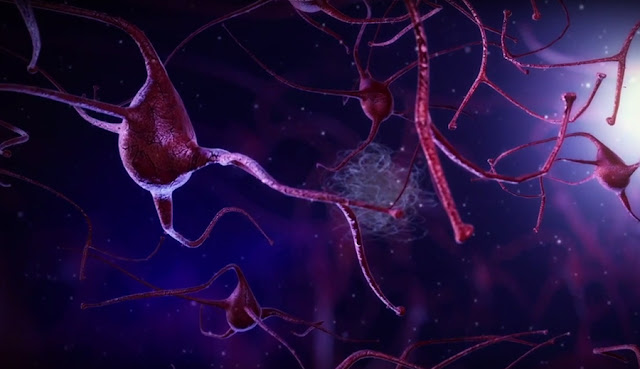A new study suggests an abnormal accumulation of fat in the
brain may trigger or hasten the progression of Alzheimer’s disease.
This breakthrough research was led by the Research Center of
the University of Montreal led Hospital (CRCHUM). The findings were published
in the journal Cell Stem Cell.
According to the World Health Organization (WHO) estimate,
there are about 47 million people living with dementia globally - 60% to 70% of
who are Alzheimer’s patients. Every 3 seconds someone in the world develops
dementia.
Researchers noted that for the first time since the disease
was described in 1906, they have discovered fat buildup in brain of patients
who died of the disease and have identified the nature of the fat.
The team’s initial goal was to find out why the brain’s stem
cells appeared to be inactive in Alzheimer’s disease when normally it is
supposed to repair brain damage.
While comparing the brains of nine patients who died of
Alzheimer’s with the brains of five healthy patients, the researchers found
significantly more fat buildup in brain of the dead Alzheimer’s patients. A
team of chemists, using advanced mass spectrometry, identified the fat deposits
as triglycerides which were enriched with fatty acids which are commonly found
in animal fats and vegetable oils.
“We discovered these
fatty acids are produced by the brain, that they build up slowly with normal
aging, but that the process is accelerated significantly in the presence of
genes that predispose to Alzheimer’s disease,” said co-author Karl Fernandes.
While doing the test on mice, researchers found out that
brains of mice predisposed to Alzheimer’s built up the fatty acids at the of 2
months which would be early twenties in human terms.
“In mice predisposed to the disease, we showed these fatty
acids accumulate very early on, at two months of age, which corresponds to the
early twenties in humans. Therefore, we think that the build-up of fatty acids
is not a consequence but rather a cause of accelerator of the disease,”
Fernandes said.
"Therefore, we think that the build-up of fatty acids
is not a consequence but rather a cause or accelerator of the disease."
The discovery of fat buildup in brain in Alzheimer’s
patients opens up new possibilities in finding a cure or slowing the progress
of Alzheimer’s.














0 comments:
Post a Comment